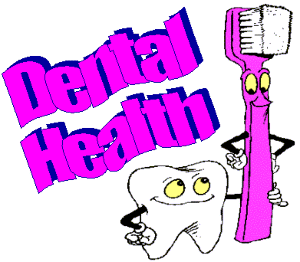As with any animal, good oral health is critical to the overall health of your dog. Brushing your dog's teeth regularly will not only help prevent bad breath, but it could also reduce the risk of serious health problems such as abscesses. Worryingly, the bacteria from the abscess can quickly travel through the body and affect the heart, kidneys, liver and brain via the blood. Therefore, it is important that the dental health of your dog is properly cared. Below are tips on brushing your dog's teeth and other methods of disposal of dog's dental health.
bad effects of Dental Care
Unlike humans, dogs rarely have cavities. Instead, the most common problems in dog mouth gingivitis which is inflammation of the gums and plaque, a growth of bacteria due to food debris between teeth and along the gum line. Of course, as mentioned above, this can lead to ulcers, which can have very harmful and even fatal consequences.
Obviously, brushing, which helps remove plaque, the best measures to prevent these potential health problems.
Brushing your dog's teeth
is recommended to start brushing the dog's teeth from early puppyhood, partly because it will allow him or her to become accustomed to the activity, but also because it is a good idea to remember your dog's dental health from the very beginning.
There are toothbrushes specially designed for dog use, which can be found in most pet stores. However, a soft bristled baby brush will work just as effectively. Human toothpaste, however, should not be used for your dog. Canine toothpaste are available from pet stores or local veterinary office.
Some dogs are reluctant to allow their teeth to brush, so it is necessary to train to be treated in this way from a young age. When training your dog, start with small steps, such as opening his or her, mouth. Be sure to provide lots of praise for allowing you to do so. Then start brushing the teeth, again lots of praise should be awarded. When your dog is comfortable, increase the space and the amount of time you spend brushing. If at any time, your dog becomes distressed, stop and allow, or her, to calm down before starting again.
This is a good idea to pay particular attention to your dog's upper back teeth, because it will provide the first sign of plaque build-up.
Dental Care Treats
crunchy treats, and they are specifically designed to improve the dental health of your dog, are great for removing food between teeth and gums, leaving healthy. Typically, crunchy foods are better for your dog's dental health, then soft, canned or pouch, the food, so you May want to add a mixer to wet food. Alternatively, make sure that your dog companion has a crunchy treat after each meal.
prophylaxis
Prophylaxis is a thorough cleaning to be done under anestezijom.Veterinar will take X-rays, examine each tooth and carefully remove all abscessed or infected ones. Then, the teeth and gums are meticulously cleaned.
This treatment may be needed when you adopt a rescued dog, as well as their dental health are often poorly cared for. In addition, older dogs are likely to have problems with their teeth and gums and May need prophylaxis. However, as a prophylaxis requires anesthesia and anesthetic always carries a risk, should not be used as an alternative to regular brushing and dental care at home.
Even though your dog may not enjoy it, it is crucial that you clean your own, or her teeth regularly. If you have trouble training your dog to accept brushing, seek advice from your vet or obedience trainer.

first of all this should be fun for you and your dog. at the beginning take things slowly. Do not overly restrain your dog..and thing is more you should keep in mind while this process talk to your dog in a happy voice during the process and praise your dog at the end.
ReplyDeletePet grooming